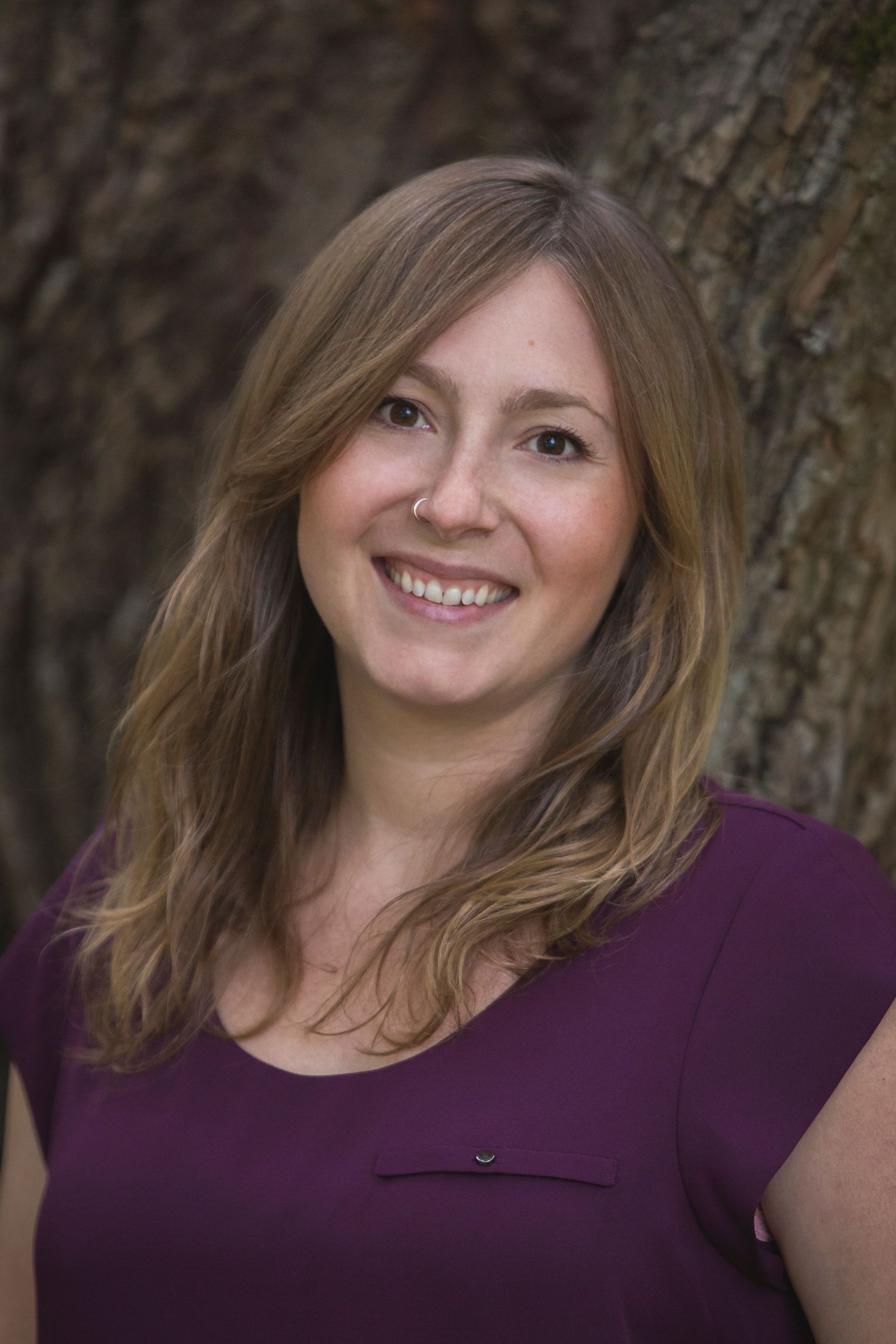
How do I support others with dignity through the passage that grief invites?
Dominance culture has relegated grief to the shadows as illness, weakness, and an antithesis to productivity, worth, and value. We are made to feel that grief is shame-worthy and that we are inadequate if we haven't 'got over it yet' or that we are over-reacting when our heart feels pain for the world. We are given ample means to numb out, deny, and remain isolated in the face of loss and pain. Yet we know in our bones, and see testament to it everywhere, that un-metabolized grief perpetuates disconnection which then fuels ongoing trauma and systemic oppression of all kinds.
This
needs to change. And some of us are being called forward to tend
to these threshold experiences and to deepen our capacity to bear witness; to be an ally to dignity and inter-connection that grief invites of us. We are being asked to facilitate grief
passages in service to healing, liberation and love, personally and collectively.
Now,
more than ever, we need grief companions, grief tenders, and grief
activist to help usher us through these times with resiliency and dignity.
This is a self-paced program for those seeking to deepen their practical, therapeutic, and soulful approaches to supporting others through grief, loss, and transition in ways that promote dignity through times of pain. For those who want to learn relational healing skills and strategies to enhance their caring support of others. For those who want to refine their ability to hold effective and healing space for others. And, for those who are called to companion others through life transitions in attuned and meaningful ways.
Whether you are a loving family member, caring friend, peer counselor, volunteer,
death doula, outreach worker, nature-based guide, healer, therapist, coach, facilitator, activist, or community leader, this program provides foundational skills, knowledge and approaches that allow
you to show up in compassionate and healing ways for others through difficult times.
The content is relevant to one-on-one and small group support contexts, and within educational settings.
All content is grounded in trauma-aware, heart-centered, culturally-inclusive and
resiliency-based therapeutic approaches and is relevant to multiple
and diverse loss and change contexts, from personal to collective and cultural.
The
practices and skills offered in the course are informed by therapeutic grief theory
and practice, Satir
Transformational Therapy, NARM-informed approaches to healing
trauma, response-based, decolonial, and anti-oppressive practice, somatic and
embodied healing modalities, cultural and feminist studies, and over 16 years of first-hand experience supporting and teaching a diversity of
people through a diversity of change and loss.

The course was very well-researched, organized
and thoughtfully prepared - the content and teaching approach was well-paced
and there was room to breathe, absorb, and process. Overall one of the more excellent online courses I've
participated in. Shauna's presence as an educator is well regulated which
helps contain the learning space and make for a great online learning experience.
Jenna D.
Why self-paced?
Many Sacred Grief programs are offered as live-time teaching and cohort-specific experiences, however that means they are only offered once a year or two, and tend to be higher in financial investment.
My goal is to offer different options for learning that are accessible and can accommodate different capacities for folks' time, availability, and resources, alongside meeting the rather urgent need for grief skills in these times.
This course was originally delivered in live-time cohorts (formerly called Roots to Resiliency). It is now available to you as this self-paced program.
How is this program structured?
There are 8 modules in total, each with a recorded video lesson, practice and integration invitations, and additional resources. Each new module becomes available when you complete the one prior.
What will I receive?
- Over 6 hours of video lesson content
- Experiential activities, reflections, and/or handouts with each lesson module
- Additional resource section for each lesson module to support further exploration
- A certificate of completion once you have finished all modules
- Lifetime access (for as long as Sacred Grief exists!)
What is the weekly time commitment?
This is an adult learning program and the amount of time and effort you put in will directly relate to what you get out of it. To fully engage with the content, integration and resources I recommend a minimum of 2-3 hours per module.
What is required?
This course is designed to support an experiential and embodied
deepening into your capacity to support others with attunement. presence
and therapeutic wisdom, drawing on concepts that are transferable to
diverse and unique contexts.
An openness to engage in self-inquiry around your own grief is
necessary. Similar to any in-person counseling training, self-reflection
and your own continued healing is part of the program.
The
more we can be with and understand our own grief process, the better
able we are to show up for others in healing and effective ways. This
training is delivered with this axiom as foundation.
I recommend having your own additional supports available, such as a counsellor, as you move through this. You can also reach out for 1:1 support sessions with me - I welcome you as long as I have space in my practice. I do prioritize those who are taking Sacred Grief programs.
Will the content be relevant to me?
I welcome folks of diverse lived experiences and skill levels who are supporting others through grief of any kind, and who have experience working through and with their own grief in healing ways. Whether you have years of experience in the helping profession, or are newly on the path to tending grief - you are welcomed and will receive benefit from the content. This course is a trauma-aware and resiliency-focused framework that provides accessible, practical and soulful approaches that can be integrated into your caring relationships, now. All the skills are transferable to different and multiple loss contexts.

This course greatly exceeded my expectations! The information that Shauna shares is invaluable for anyone who supports others in grief, and the way that she shares it is very approachable and easy to understand. I can not recommend this course enough. I think the world would be a better place if everyone did take it! Lea Taylor
What does this program cover?
Lesson 1 - Foundations in Grief Literacy
- Pillars of grief awareness and education
- Personal and cultural frameworks for understanding grief
- Grieving styles and expressions
Lesson 2 - Creating Safeness
- Supporting nervous system capacity
- Mapping support and resources
- Enhancing self-efficacy for resiliency
Lesson 3 - Self as Healing Presence
- Congruency, attunement and unconditional positive regard
- Boundaries, integrity and individual needs
- Companioning perspectives
Lesson 4 - Complexities of Loss
- Tangible and intangible roots to grieving
- Nurturing coping strategies through grief yearnings
- Transformation Tree model for exploring loss
Lesson 5 - Beyond Theory and Into Practice
- Moving beyond the well-known Western theories of grief
- Response-based approaches that uplift choice and dignity
- Social position, privilege and power in helping roles
Lesson 6 - Trauma-Aware Considerations
- Signs of trauma as a response
- Caring responsibilities as a non-therapist
- Special considerations for traumatic bereavement
Lesson 7 - Kids and Youth
- Developmental considerations for understanding death
- Unique adolescent grief needs
- Engaging healing through metaphor
Lesson 8 - Self-Designed Rituals
- Basic elements of ritual for grieving and healing
- Facilitating meaningful ritual design to meet grief needs
- Supporting relational (animist) ways of being with grief

I am a registered clinical counselor and survivor of complex trauma. Professionally I found this course contributed a lot of knowledge and tools to my base and Shauna is truly a master trainer. One of the best I have encountered in my 13 yrs in the field.
The overview of Grief Theory was really informative and important since sadly, in my field grief is considered a specialty despite the fact that every human experiences it. Shauna showed us the key ingredients to move grief and avoid it becoming stuck energy. Ritual created a container and means to do this grief work in the group or on our own and we even learned how to help clients design their own rituals.
This is truly a course for our times, with covid, the environmental, racial and political crises. I feel truly fortunate to have been part of this. It strengthened me spiritually and regulated my nervous system. Thank you Shauna - when I think of you I think of trust, safety, deep wisdom and collective healing . N.M.
Financial Reciprocity
This program is offered on a sliding scale which acknowledges folks' different access
to resources within an inequitable capitalist system, and is offered
within a commitment to economic justice and community care.
I invite you to read my Financial Access Commitments
to learn about why and how I do this, and to review a more
comprehensive framework to help you discern which pricing tier to choose
given your financial situation and access to resources.
Pay it Forward - $375 USD
You
have access to wealth, can pay for this course without much financial
consideration, and have the ability to pay a little extra to directly
support someone else who needs financial access options to participate.
Program Cost - $300 USD
You have access to reliable income, and/or own property/mortgage, and/or are paying at the higher end of rental, and/or
are in a double-income home, and/or have
personal savings/investments. You are able to pay for ‘wants’ and spend
little time worried about securing necessities in your life, such as
housing, food, transportation.
Reduced Cost - $225 USD
You
have access to income that allows you to meet your basic needs, you may
have some expendable income, and/or
have access to resources through family/partners to request support
from. You may need to budget or cut back in some other areas to make
this program happen, but it won't cause any long-term harmful impact on
your life.
(This may also be an option for those paying in CAD currency who would typically pay Program Cost but have to consider the exchange rate. Thank you.)
Sponsored Cost - $150-$225 USD (Sliding Scale)
Your
access to resources and income stability is limited, and meeting your
basic needs is stressful and inconsistent. Paying at any of the higher
tiers would have a harmful impact on you.
I
prioritize BIPOC, LGBTQI+ and disabled folks in financial need for the
sponsored spots.
Please reach out directly to
me at shaunajanz-at-gmail-dot-com
to request this and let me know what price on the sliding scale you are able to pay.
Thank you.
Refunds
A full refund is available if you are unhappy with the course after reviewing the first module. After you have moved past the first module no refunds are issued (this shows on your student profile stats through the Teachable platform).
Get started now!
Frequently Asked Questions
Your Instructor

For over 16 years, I have been offering individuals, families, communities, and organizations trauma-informed grief and loss support and education.
I have had the honor to work with
non-profit organizations, government, First Nation communities, post-secondary educational institutions, school counseling and critical
incident response teams, hospice teams, and rural community support teams. I have an active
private practice offering consulting and facilitation services. I am in ongoing partnership with Moms Stop the Harm providing trauma-informed facilitation skills to their national team of facilitators in the context of harm reduction and bereavement by substance poisoning. I have also been a trainer with
BC Bereavement Helpline delivering traumatic loss support training for violent death loss, and for 12 years was the education director and facilitator with Learning Through Loss delivering grief trainings for supporting youth and school based programs.
My approach is trauma-informed, anti-oppressive and rooted in nurturing resiliency and dignity.
